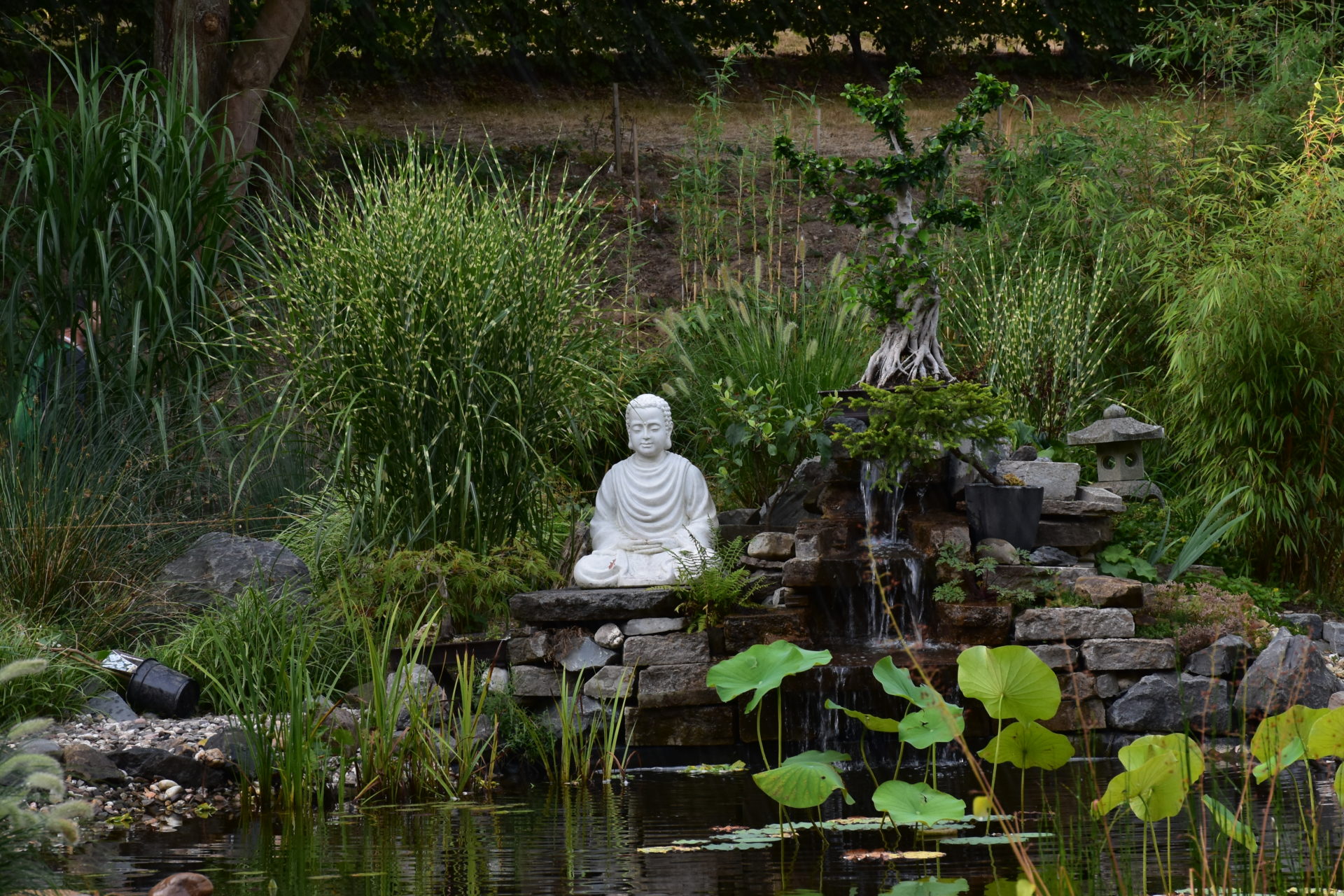By Dennis Bohn
My first exposure to the Fourteen Precepts (as they were called at the time) was in a Barnes and Noble bookstore in Cooper Square in New York’s East Village. I read the First Precept, saw “not be idolatrous or bound to any doctrine, theory or ideology, even Buddhist ones,” and laughed out loud. I thought, “Wow, this guy is serious and strong.”
By 1997 or 1998,
By Dennis Bohn
My first exposure to the Fourteen Precepts (as they were called at the time) was in a Barnes and Noble bookstore in Cooper Square in New York’s East Village. I read the First Precept, saw “not be idolatrous or bound to any doctrine, theory or ideology, even Buddhist ones,” and laughed out loud. I thought, “Wow, this guy is serious and strong.”
By 1997 or 1998, the Fourteen Precepts were revised and renamed the Fourteen Mindfulness Trainings. The first reading of the revised Fourteenth Mindfulness Training struck a deep resonant jolt of recognition in me:
“Aware that sexual relations motivated by craving cannot dissipate the feeling of loneliness but will create more suffering, frustration, and isolation, we are determined not to engage in sexual relations without mutual understanding, love, and a long-term commitment.”
As a result of a certain background, ancestral energy, and culture, I myself had taken as the aim of my life the escape from suffering via intoxication through casual relationships. This can feel powerful and exhilarating. I found that the high—followed by intense loneliness and increased craving—arose from acting on that volition. As I continued this lifestyle, a sense of despair arose in me. It is not that we might go to hell from unmindful sexual relationships; it is that we create a hell in our life.
The third of the Five Mindfulness Trainings and the Fourteenth Mindfulness Training suggest that to be fully free and healthy, it is best to have sexual relations only in the context of love, understanding, and a long-term commitment. They are meant to help us create a zone of freedom around our so-called romantic involvements. If we are a single person in the twenty-first century, this is utterly foreign, completely far-fetched, and contrary to our upbringing and every message around sex that we receive from our culture! Whenever we turn on the television or go to Netflix, Hulu, or other media, we are bombarded with sexual images. Moreover, we live in a culture where the norm is to have sexual relations prior to emotional intimacy and long-lasting commitment. Our habit energies nourished by our culture can easily push us away from the trainings’ protection.
We know that at the onset of a relationship, we perceive the other person with “rose-colored glasses;” much of what we perceive is a projection of our own desires. Whether we have received any of the trainings or not, Thay encourages us to cultivate love and commitment before clouding our perceptions even more with sexual relations. This is not a commandment but a compass heading to our freedom and well-being.
If we are single and deeply desire a relationship, it may seem that the Sangha is a natural place; many people in the Sangha share many of our values, and we want to be with someone who shares our values. The unfortunate fact is that the relationship usually will not last and is likely based on some craving and projection. We need only look at our past experiences to remember that most dating relationships do not become long lasting. But the possibility may yet be there.
By slowing down for love, intimacy, and commitment before sexual relations, we can ensure a more wholesome life and perhaps allow a true relationship to blossom. This is especially true in the context of Sangha, where if the relationship does not hold together, there is a good possibility that one or both people will feel some discomfort and leave the refuge of the Sangha. Unmindful sexual relations are so woven into our culture that even faith communities are broken again and again by sexual misconduct. We must not imagine that our beloved community is immune from misconduct.
Maintaining Healthy Boundaries
Thay has said many times: to receive the Fourteen Mindfulness Trainings is a commitment to be a Sangha builder.1 For the good of our entire community, it is incumbent on us as Order of Interbeing members to have clear boundaries in our Sangha relationships. As a facilitator or Order of Interbeing member, we hold the space for people to come and heal, to learn the practice, and to develop their spiritual life. If, as facilitators or Order of Interbeing members, we look to our Sangha members to fulfill our needs, it can be an obstacle to their growth and development in the practice.
Moreover, whether we like it or not, a power relationship between Order of Interbeing members and facilitators and the other Sangha members is perceived. When a relationship is rooted in the soil of a power differential of an Order of Interbeing member or facilitator being involved with a Sangha member/attendee, the result can be particularly detrimental to the Sangha. The fact is that when we commit to being a member of the core community, we commit to a caring relationship, to being a spiritual caretaker, and to a pastoral relationship.
Several Dharma teachers were fortunate enough to attend a train-the-trainer on healthy boundaries in spiritual communities presented by the FaithTrust Institute last Fall. We hope to adapt the program to our Plum Village community in the near future. In a video from that course, Rev. Gail Crouch said in the context of traditional church life: “(Being a pastor is) part of the power (of leadership). As pastors we always have the responsibility to set the boundary; it is not up to the parishioner.” Certainly, if we are truly Sangha builders and caretakers, it is up to us as Order of Interbeing members to set the boundaries as well.
I know many of us will say, “But there are exceptions.”
I would like to share something that I heard from Jan Chozen Bays, a teacher in another Zen tradition, in the same video: “(People say,) aren’t there exceptions to every rule? But everybody wants to be the exception. We secretly hope that we can get away with crossing some of these boundaries or violating some of the precepts, in a special circumstance of course, and it would be all right. But it just isn’t true. It just isn’t true; we are all subject to the laws of cause and effect.”
Thay says, “Laypeople who practice the Five Mindfulness Trainings have holiness. There is a sutra called the Holy Disciple where it is stated that the monk who keeps the 250 precepts of the monastic code, and the layperson who practices the Five Mindfulness Trainings, are holy disciples who have holiness within. This holiness comes from the practice. Chastity as far as a monk or nun is concerned means abstaining from sexual relations and any kind of emotional attachment. As far as a lay disciple is concerned, it means practicing the third of the Five Mindfulness Trainings.”2
I understand that it can be difficult in this time and place to maintain healthy sexual boundaries. For the health of our Sanghas and Thay’s continuation, it is vital that Dharma teachers and Order of Interbeing members are vigilant in maintaining healthy boundaries and take refuge in the freedom that the Fourteen Mindfulness Trainings offer us. This is a true training in mindfulness for ourselves and our communities.
1 Thich Nhat Hanh, Interbeing (Berkeley, CA: Parallax Press, 1987)
2 Thich Nhat Hanh, “Enjoy the Ultimate, Part IX” (Dharma talk, Plum Village, December 5, 2010)

Dennis Bohn, True Mountain of Peace, made the formal commitment to build a Sangha and receive the Fourteen Precepts in 1997 and has supported the Brooklyn Rock Blossom Sangha since then. He received the Lamp Transmission from Thay in 2011 along with three lay OI members from the New York area. He splits his time now between Brooklyn and the South Jersey area of Ocean Bays and Pine Wilderness, where he helps support the UUCSJS (Unitarian Universalist Congregation of the South Jersey Shore) Buddhist Sangha.

